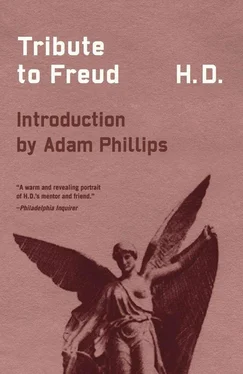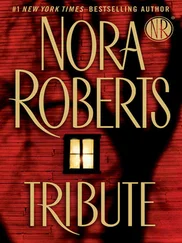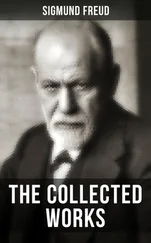Already in Vienna, the shadows were lengthening or the tide was rising. The signs of grim coming events, however, manifested in a curious fashion. There were, for instance, occasional coquettish, confetti-like showers from the air, gilded paper swastikas and narrow strips of printed paper like the ones we pulled out of our Christmas bon-bons, those gay favors that we called “caps” as children in America and that English children call “crackers.” The party had begun, or this was preliminary to the birthday or the wedding. I stooped to scrape up a handful of these confetti-like tokens as I was leaving the Hotel Regina one morning. They were printed on those familiar little oblongs of thin paper that fell out of the paper cap when it was unfolded at the party; we called them mottoes. These mottoes were short and bright and to the point. One read in clear primer-book German, “Hitler gives bread,” “Hitler gives work,” and so on. I wondered if I should enclose this handful in a letter to one of my first group of friends in London — or to one of the second. I had a mischievous picture of this gay shower falling on a carpet in Kensington or Knightsbridge or on a bare floor in a Chelsea or Bloomsbury studio. It would be a good joke. The paper was crisp and clean, the gold clear as Danaë’s legendary shower, and the whole savored of birthday cake and candles or fresh-bought Christmas-tree decorations. The gold, however, would not stay bright nor the paper crisp very long, for people passed to and fro across Freiheitsplatz and along the pavement, trampling over this Danaë shower, not taking any notice. Was I the only person in Vienna who had stooped to scrape up a handful of these tokens? It seemed so. One of the hotel porters emerged with a long-handled brush-broom. As I saw him begin methodically sweeping the papers off the pavement, I dropped my handful in the gutter.
There were other swastikas. They were the chalk ones now; I followed them down Berggasse as if they had been chalked on the pavement especially for my benefit. They led to the Professor’s door — maybe, they passed on down another street to another door but I did not look any further. No one brushed these swastikas out. It is not so easy to scrub death-head chalk-marks from a pavement. It is not so easy and it is more conspicuous than sweeping tinsel paper into a gutter. And this was a little later.
Then there were rifles. They were stacked neatly. They stood in bivouac formations at the street corners. It must have been a weekend; I don’t remember. I could verify the actual date of their appearance by referring to my notebooks, but it is the general impression that concerns us, rather than the historical or political sequence. They were not German guns — but perhaps they were; anyway, these were Austrian soldiers. The stacks of rifles gave the streets a neat, finished effect, as of an 1860 print. They seemed old-fashioned, the soldiers seemed old-fashioned; I was no doubt reminded of familiar pictures of our American Civil War. This was some sort of civil war. No one would explain it to me. The hall porter, usually so talkative, was embarrassed when I questioned him. Well, I must not involve him in any discussion or dangerous statement of opinion. I went out anyway. There were some people about and the soldiers were out of a picture or a film of a reconstructed Civil War period. They did not seem very formidable. I had meant to go to the opera — it was late afternoon or early evening — so I might as well go to the opera, if there were an opera, as mope in my room or loiter about the hotel, wondering and watching. When challenged on one of the main thoroughfares, I said simply, in my sketchy German, that I was a visitor in Vienna; they called me the English lady at the hotel, so I said I was from England, which in fact I was. What was I doing? Where was I going? I said I was going to the opera, if I was not disturbing them or getting in their way. There was a little whispering and shuffling and I was embarrassed to find that I had attracted the attention of the officers and had almost a guard of honor to the steps of the opera house, where there were more guns and soldiers, seated on the steps and standing at attention on the pavement. It seemed that nothing, at any rate, could stop the opera. I stayed for part of the performance of — I don’t remember what it was — and had no trouble finding my way back.
Then it was quiet and the hotel lobby seemed strangely empty. Even the hall porter disappeared from behind his desk. Maybe this was the following Monday; in any case, I was due at Berggasse for my usual session. The little maid, Paula, peered through a crack in the door, hesitated, then furtively ushered me in. She did not wear her pretty cap and apron. Evidently, she was not expecting me. “But — but no one has come today; no one has gone out.” All right, would she explain to the Professor, in case he did not want to see me. She opened the waiting-room door. I waited as usual in the room, with the round table, the odds and ends of old papers and magazines. There were the usual framed photographs; among them, Dr. Havelock Ellis and Dr. Hanns Sachs greeted me from the wall. There was the honorary diploma that had been presented to the Professor in his early days by the small New England university. There was also a bizarre print or engraving of some nightmare horror, a “Buried Alive” or some such thing, done in Düreresque symbolic detail. There were long lace curtains at the window, like a “room in Vienna” in a play or film.
The Professor opened the inner door after a short interval. Then I sat on the couch. The Professor said, “But why did you come? No one has come here today, no one. What is it like outside? Why did you come out?”
I said, “It’s very quiet. There doesn’t seem to be anyone about in the streets. The hotel seems quiet, too. But otherwise, it’s much the same as usual.” He said, “Why did you come?” It seemed to puzzle him, he did not seem to understand what had brought me.
What did he expect me to say? I don’t think I said it. My being there surely expressed it? I am here because no one else has come. As if again, symbolically, I must be different. Where was the Flying Dutchman? Or the American lady-doctor whom I had not seen? There were only four of us at that time, I believe, rather special people. It is true that Mrs. Burlingham, Miss Anna Freud’s devoted friend, and the Professor’s disciple or pupil, had an apartment, further up the stairs. I had gone up there to tea one day before my session here. The Professor was not really alone. The envoys of the Princess, too, I had been informed, were waiting on the door-steps of various legations and they would inform her of any actual threat to the Professor’s personal safety. But, in a sense, I was the only one who had come from the outside; little Paula substantiated that when she peered so fearfully through the crack in the front door. Again, I was different. I had made a unique gesture, although actually I felt my coming was the merest courtesy; this was our usual time of meeting, our session, our “hour” together. I did not know what the Professor was thinking. He could not be thinking, “I am an old man — you do not think it worth your while to love me. ” Or if he remembered having said that, this surely was the answer to it.
It may have been that day or another that the Professor spoke of his grandchildren. In any case, whenever it was, I felt a sudden gap, a severance, a chasm or a schism in consciousness, which I tried to conceal from him. It was so tribal, so conventionally Mosaic. As he ran over their names and the names of their parents, one felt the old impatience, a sort of intellectual eye-strain, the old boredom of looking out historical, genealogical references in a small-print school or Sunday-school Bible. It was Genesis but not the very beginning. Not the exciting verses about the birds and the reptiles, the trees, the sun and the moon, those greater and lesser lights. He was worried about them (and no small wonder), but I was worried about something else. I did not then realize the reason for my anxiety. I knew the Professor would move on somewhere else, before so very long, but it seemed the eternal life he visualized was in the old Judaic tradition. He would live forever like Abraham, Isaac, and Jacob, in his children’s children, multiplied like the sands of the sea. That is how it seemed to me his mind was working, and that is how, faced with the blank wall of danger, of physical annihilation, his mind would work.
Читать дальше











